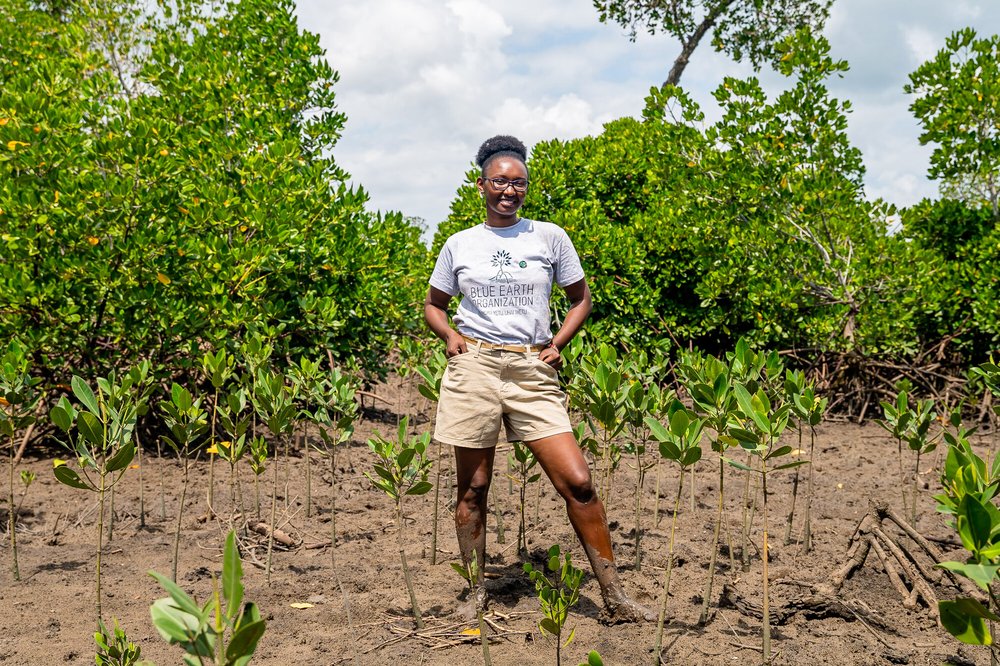From Passion to Action: A Journey in Activism
My name is Joyce and my activism started with a passion for environmental conservation. Living on the coast of Kenya, I saw how plastic pollution was choking our oceans, occasionally hearing of fisherman coming home with no fish. Their words “bahari chafu” meaning the ocean is dirty in Swahili.
Because of this, I gathered the courage and decided to host a beach clean-up. This act alone motivated me and inspired me to do more beach clean-ups, but I wanted to do even more conservation work.
Climate activist, Joyce Koech, stands among recently planted mangroves as part of her pioneering restoration project in Mombasa, Kenya. Photo: Victor Wahome/Oxfam.

Climate activist, Joyce Koech, stands among recently planted mangroves as part of her pioneering restoration project in Mombasa, Kenya.
Conserving the coast
From individual change to collective action
Community members join the Blue Earth Organisation as they plant new mangrove seedlings, boosting coastal protection and biodiversity in Mombasa, Kenya. Photo: Victor Wahome/Oxfam.
After doing some research, I was fascinated. They had the power to solve the climate crisis! The trees take in 10 times more CO2 than terrestrial forests. I told myself, I have found a solution to the climate crisis... and now I can do something. Together with my community and other young people I organised my first mangrove planting event and planted 100 trees.”
Joyce Koech, Kenya
Fighting climate injustice: Now and for the next generation
Activist and conservationist Joyce Koech talks with Khadijah Suleiman, a schoolgirl from Mombasa who was inspired to take climate action by Joyce. Photo: Victor Wahome/Oxfam.
Young girls are having to compromise their education, being given away for marriage so that the family can recoup lost livelihoods through dowries. The inequalities we experience as women motivates me to continue raising awareness about climate injustice, because our role in the fight against climate change is crucial.”
Joyce Koech, Kenya
Stay in the fight
Kenyan activist Joyce leading a climate crisis protest march. Photo: Rogers Ouma.

